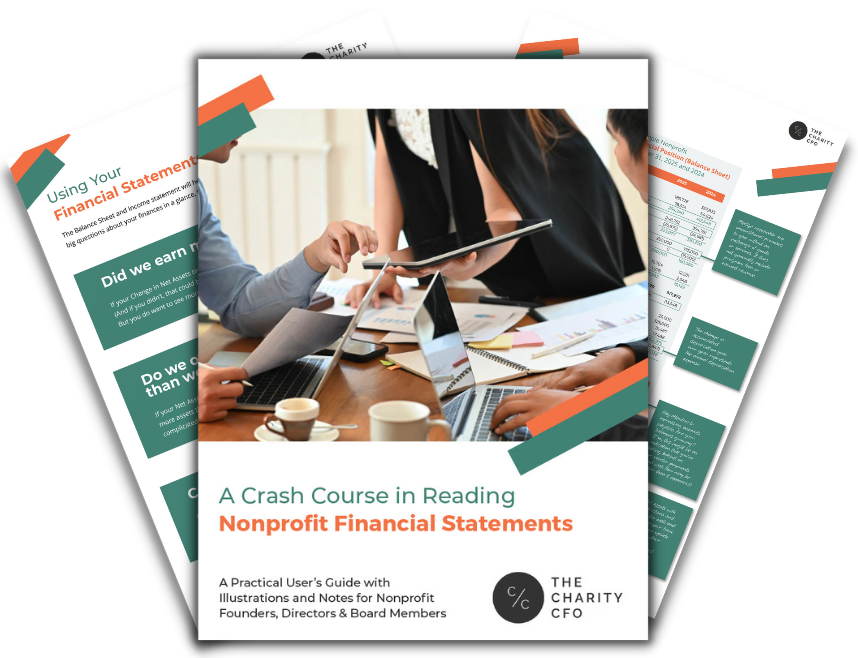Cash management for a nonprofit organization is possibly the most important consideration for success.
In a previous article, we discussed the benefits, risks, and compliance requirements of outsourcing bookkeeping for nonprofit organizations. In this article, we will build upon that knowledge and delve more specifically into the topic of cash management. Cash management is essential for maintaining financial stability, complying with regulations, and ensuring effective decision-making.
What is cash management?
When hearing the term “cash management,” many people will jump straight to the Statement of Cash Flows as the primary source of understanding. However, when speaking about cash management there is much more to the story. Cash management, at its core, refers to the process of effectively and efficiently handling and controlling the cash resources of your nonprofit organization. It involves monitoring, tracking and optimizing the inflow and outflow of cash to ensure that the organization maintains adequate liquidity and can meet its financial obligations. Cash management for a nonprofit organization encompasses various activities and strategies to manage cash flow.
Importance of tracking cash flow
Tracking the flow of cash in and out of a nonprofit organization is vital for its success and sustainability. Not only does it fulfill compliance requirements, but it also plays a crucial role in achieving the organization’s mission. By monitoring cash flow, nonprofits gain visibility into their financial health and can make informed decisions about resource allocation, budgeting, and planning. Moreover, tracking cash flow enables organizations to identify potential financial challenges in advance and take proactive steps to mitigate them. It also helps build and maintain cash reserves, which provide the necessary financial cushion to continue operations during lean periods or unforeseen circumstances.
Cash management strategies
Cash flow monitoring: monitoring cash inflows and outflows on a regular basis. This involves tracking revenue from various sources (donations, grants, program fees, investment income etc.) and expenses from various sources (salaries, rent, utilities, program costs, etc.). This supports informed decisions about spending, budgeting, and resource allocation.
Budgeting and forecasting: outlining projected income and expenses for a specific period, typically annually. Developing accurate financial forecasts can help nonprofit organizations anticipate cash flow fluctuations and plan accordingly, thus avoiding cash shortages, managing their financial commitments and allocating resources effectively.
Cash reserves: maintaining an appropriate level of cash reserves to serve as a financial buffer. Cash reserves can provide stability and flexibility during periods of uncertainty or unexpected expenses. Organizations should establish reserve policies that determine the target amount of cash to be held based on their own individual needs, operating expenses, and compliance requirements.
Cash flow optimization: strategies to optimize cash flow for an organization’s specific needs and ensuring efficient cash management. Optimizing cash flow may include negotiating payment terms with vendors, implementing efficient invoicing and collection processes, and exploring cash flow enhancement techniques such as short-term investments or revenue diversification.
Risk Management: assessing and mitigating financial risks associated with cash flow, such as liquidity, current and interest rate risks, Nonprofit organizations should have risk management strategies in place to address potential disruptions.
Overall, effective cash management strategies are essential to nonprofits to maintain financial stability, meet their financial obligations and support their mission. When strategically implemented as a part of an organization’s financial strategy and other fundamental financial requirements, cash management helps to support a holistic picture of the health and prosperity of an organization and their future abilities to maintain their mission.
Supporting fundamental financial processes
By monitoring and maintaining your cash flow, you can set your organization up for easier and smoother financial reporting processes. Understanding your cash position and consistent monitoring and tracking can help with
- Accurate Recording of Financial Transactions
- Preparation of Financial Statements
- Resource Allocations
- Budgeting and Forecasting
- Financial Analysis and Decision-Making
Effectively managing your cash flow, compliance, regulations, and reporting requirements can be overwhelming, especially without a team specializing in each of these areas. Having a second set of eyes on financials is a prudent practice for nonprofit organizations. It involves engaging an external expert, such as a professional bookkeeper or accountant, to review and analyze financial records.
This serves as a form of independent validation, ensuring accuracy, transparency, and adherence to best practices. A second set of eyes can identify potential errors, inconsistencies, or irregularities that might have been overlooked internally. It adds an additional layer of accountability, reduces the risk of fraud, and enhances the overall integrity of financial reporting.
Overall, tracking cash flow, understanding an organization’s current financial position and accurate bookkeeping and reporting are essential for financial stability, compliance, and effective decision-making.
By diligently tracking cash flow, nonprofits can ensure financial health, maintain cash reserves, and weather unforeseen challenges. Adhering to bookkeeping fundamentals and preparing accurate financial statements demonstrates transparency and facilitates sound financial management.
Additionally, the inclusion of a second set of eyes provides an extra layer of scrutiny, improving accuracy, accountability, and the overall integrity of financial records. By embracing these practices, nonprofit organizations can enhance their financial management processes and support their mission with confidence.
Prioritize cash management for a nonprofit organization
The Charity CFO is a finance and accounting firm specializing in serving nonprofit organizations. If you need help simplifying and organizing your cash management, we’d love to help. Click here to set up a free consultation and see if we can help your nonprofit.

Do You Struggle to Make Sense of Your Financial Statements?
Get our FREE GUIDE to nonprofit financial reports, featuring illustrations, annotations, and insights to help you better understand your organization's finances.
Get the free guide!



0 Comments